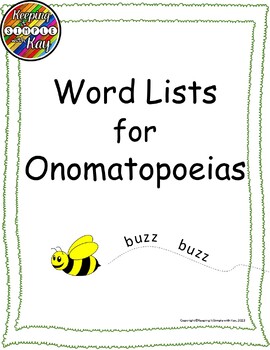
The Japanese seem to like onomatopoeia even more than other languages (they have over 1,000!) so we are devoting a whole post to teaching you the most common Japanese onomatopoeia you might find. For instance, in many languages, the onomatopoeia for laughing isn’t “hahaha” but is often “kkkk” in Asian languages or in Spanish, “jjjj.” This may seem strange to English speakers, but of course it makes perfect sense to the native speaker! Every language has onomatopoeia, but in every language they are slightly different.

In English, this is words like BOOM! SLAP! or HAHAHA! The spelling of these words is based on the sound that the action makes.

Onomatopoeia is the word for when we take a sound and make a word out of it. Robert Browning, An Excerpt from The Pied Piper of Hamelin.Ĭonclusively, an onomatopoeia can be used to create realistic representations of the sounds they want to portray.If you aren’t familiar with Japanese onomatopoeia (or any onomatopoeia for that matter) here is a quick introduction. Little hands clapping and little tongues chatteringĪnd, like fowls in a farm-yard when barley is scattering … Small feet were pattering, wooden shoes clattering Of merry crowds justling at pitching and hustling

The use of the word onomatopoeia began in the 16 th century, but this does not count as the first time humans tried to create words from the sounds they hear. The most common use of this word in English is first seen in words like “Onomastics” which means the study of words, their histories or origins, and how they were adopted into the English language. The word “onoma” means “name” while the other word “poiein” means “to make”. The onomatopoeia comes from the Greek word, “onoma” and the “poiein”.

It could be the honking of a car, the hissing of a snake, or any other kind of sound ( Read the origin of English words). It could be the sound of engines grinding. This is because an onomatopoeia strives to recreate a sound into writing. For example, when you write “woof” to describe the barking of a dog, it can be considered an onomatopoeia. An onomatopoeia is usually used to create an audio effect, and this could make a simple description more expressive, or even dramatic. Onomatopoeia is a figure of speech that is used to describe a word that mimics the natural sounds made by an object or animal.


 0 kommentar(er)
0 kommentar(er)
